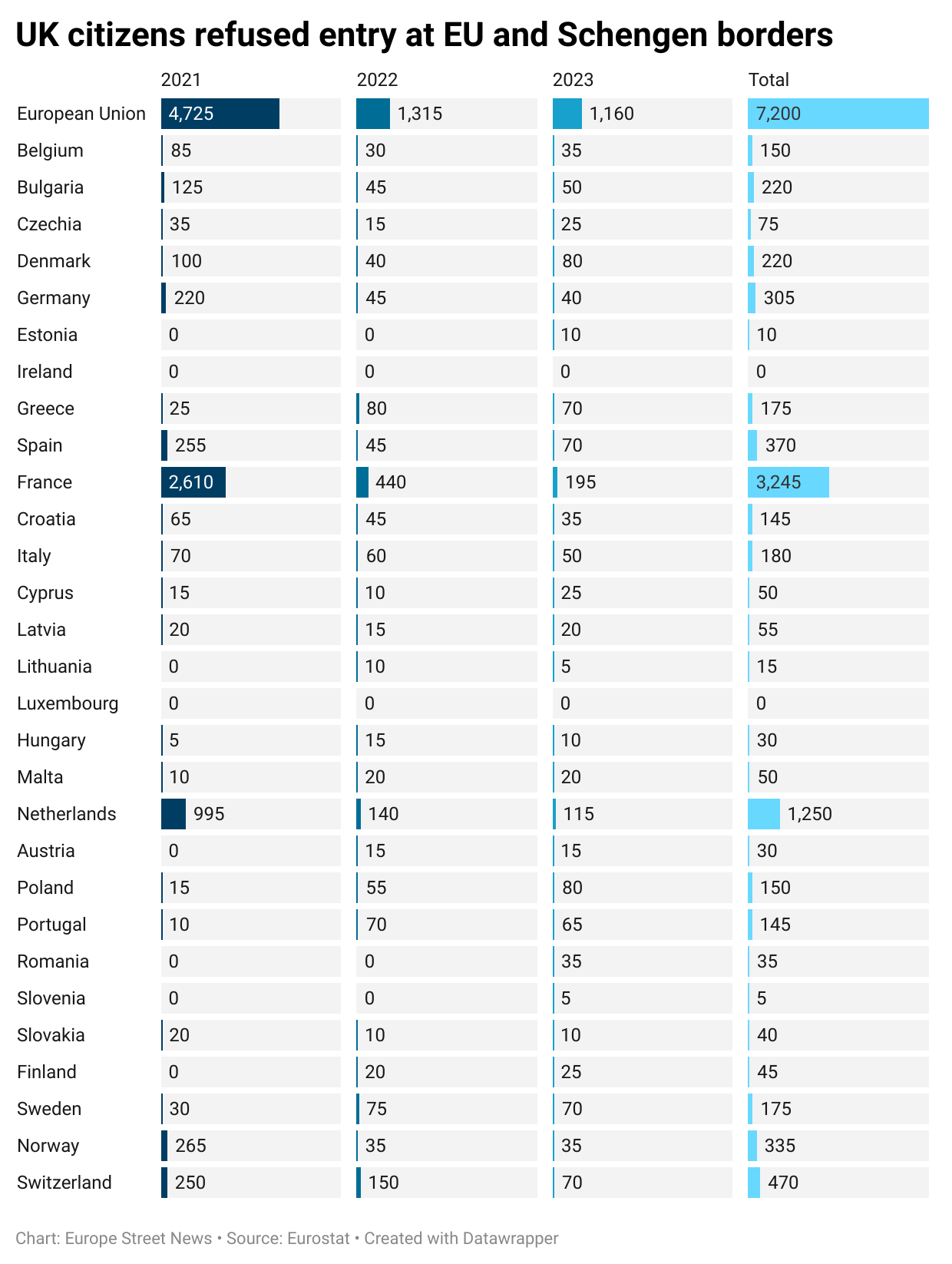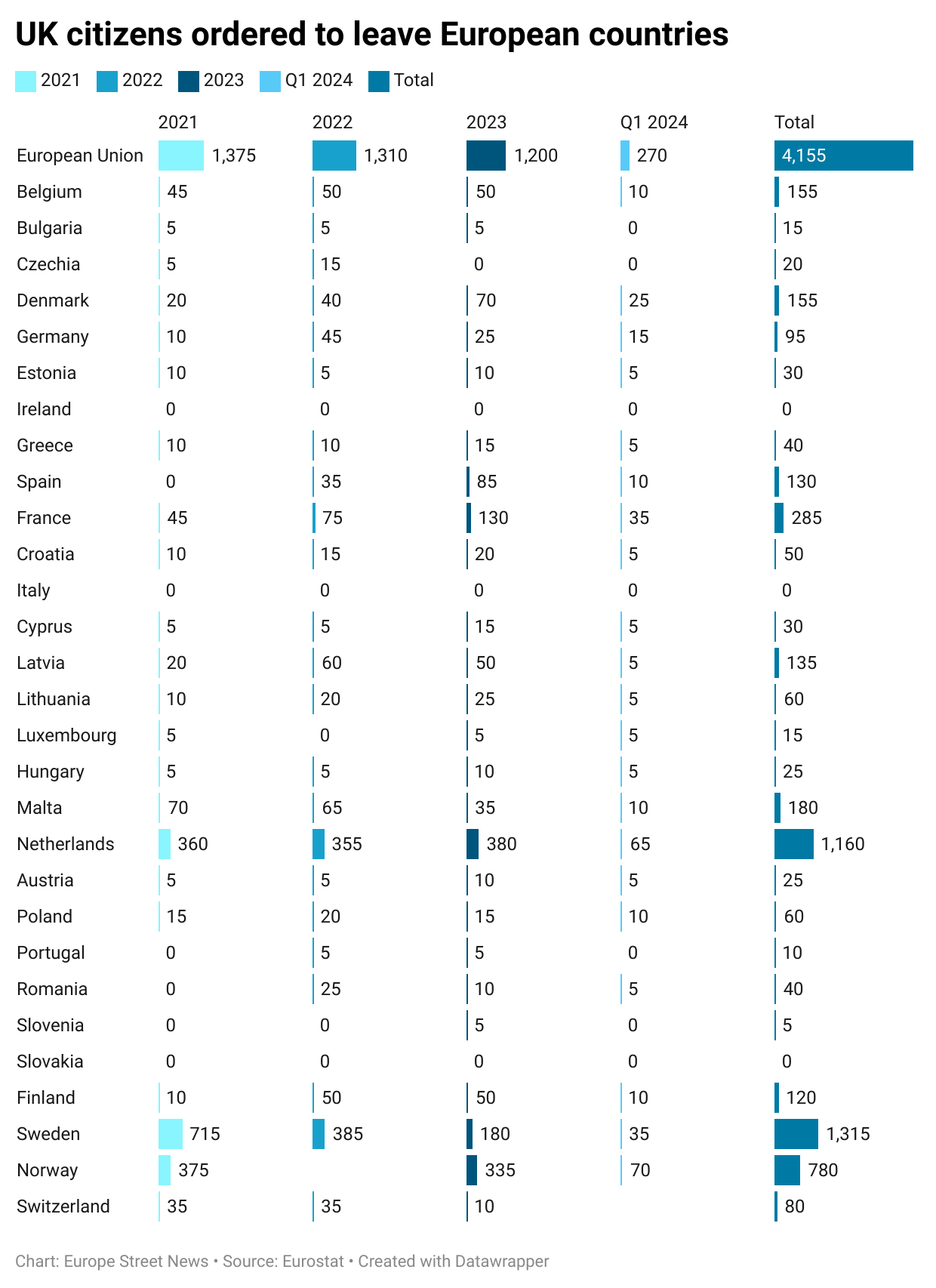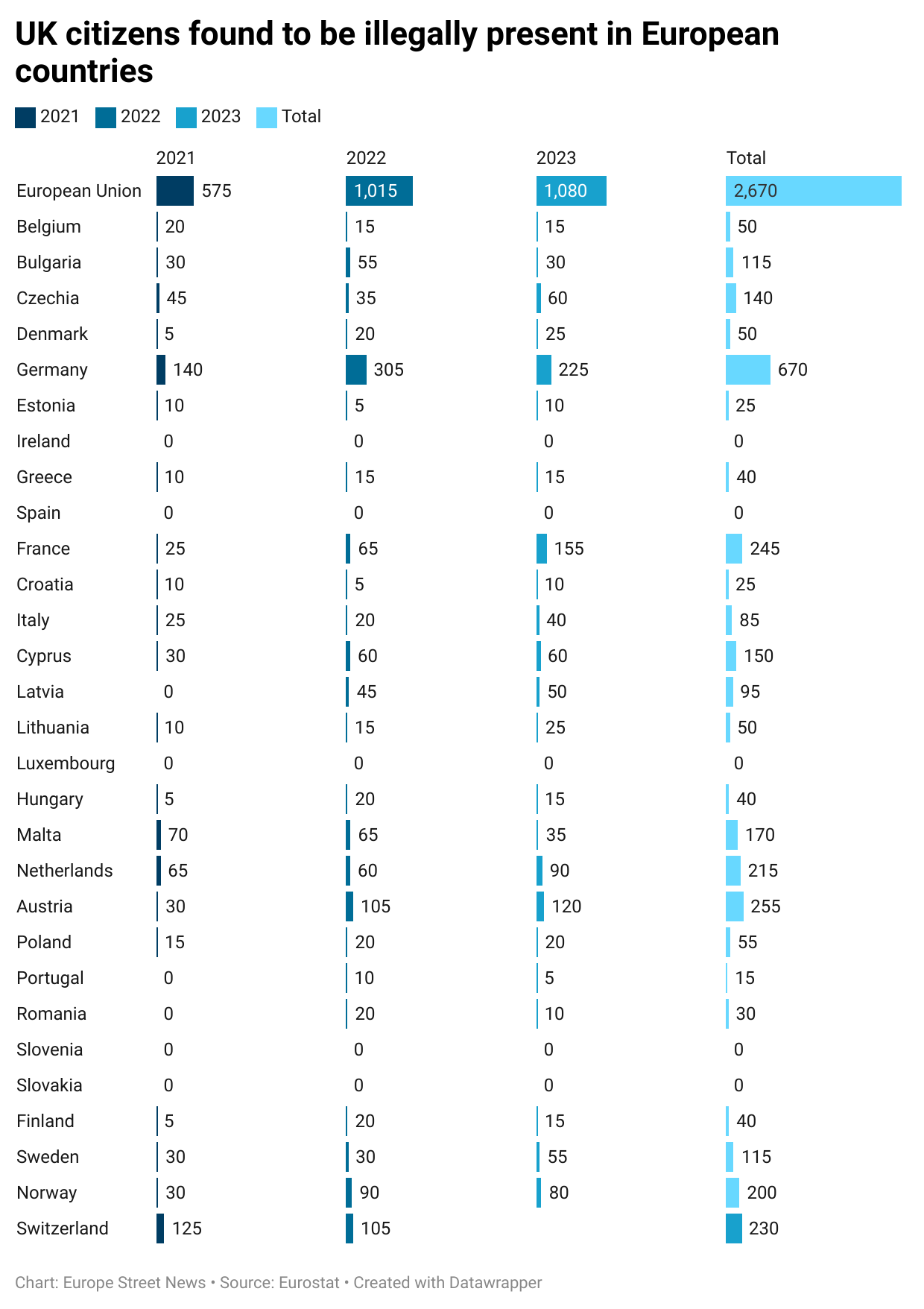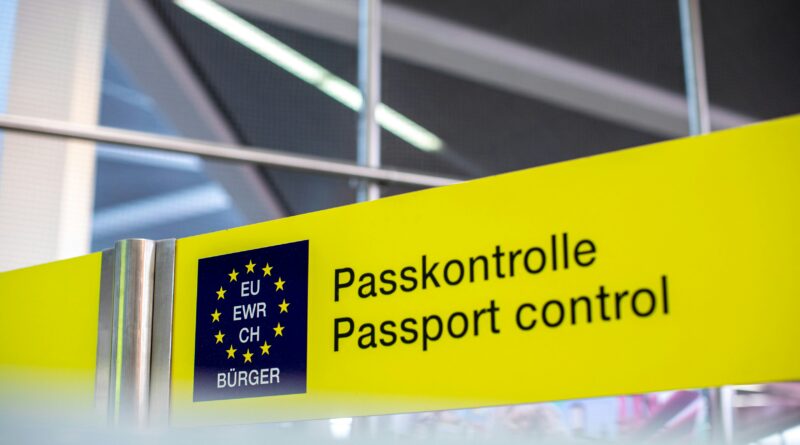How many Britons were refused entry or ordered to leave EU countries since Brexit?
Just over eight years ago, the United Kingdom voted to leave the European Union. After years of negotiations to decide the exit terms, the UK left the EU on 31 January 2020 and free movement with EU countries ended on 31 December 2020. This removed the automatic right for EU and UK citizens to move across the Channel to live, study, work or set up business, and reintroduced passport checks.
Data collected from national authorities by Eurostat, the EU statistical office, now show how many British citizens were stopped at the border or found to be illegally present in EU countries and ordered to leave.
Eurostat only collects such information about non-EU citizens, so there are no comparable data about UK nationals before 2021.
Refused entry
Non-EU citizens can be refused entry at the EU and Schengen borders if they do not fulfil entry conditions, such as having a valid passport or the right visa, or if they have already stayed the 90 days out of 180 allowed visa-free in the Schengen area. They can also be stopped if they have ‘insufficient means of subsistence’ or they are considered a public threat.
From 2021 to 2023, 7,200 UK citizens were refused entry at the EU borders, a number that increases to 7,975 if Norway and Switzerland – which are not EU members but are part of the Schengen area – are accounted for.
However, most people (4,725) were stopped at the border in 2021, at the height of the Covid crisis. Eurostat data show that 4,080 British nationals were denied entry into the EU that year because they were considered a ‘public threat’, a reason linked to Covid-19 measures. Only 30 people were stopped for the same reason in 2023.

France denied entry to 3,245 UK citizens in the past three years, not surprisingly the highest number in Europe given the geographical proximity. But again, the figure is influenced by the pandemic, as 2,610 refusals were recorded in 2021.
A large proportion of British citizens who were rejected at the border between 2021 and 2023 (930, rising to 965 when adding Norway and Switzerland) did not have a valid travel document. This could be due to Schengen rules that require to have a passport issued less than 10 years before departure and valid for three months after the planned return date. In the UK, passports issued before September 2018 can be valid for more than 10 years, adding up to nine months from an old passport to the new one.
Another 455 British citizens were refused entry because they had already stayed 90 days over a 180-day period. Schengen countries are expected to introduce in autumn the EU Entry/Exit System (EES), a digital system recording data of non-EU nationals visiting the EU for a short stay, to better check the implementation of such rule.
British citizens living in the EU with rights protected under the withdrawal agreement will be exempted from the EES and have been urged to check they have the right documents to avoid problems.
For 430 Britons the purpose and conditions of stay in the EU were ‘not justified’, according to border guards, and 380 did not have a valid visa or residence permit, a number that declined from 235 in 2021 to 55 in 2023.
In addition, 360 Britons were issued an ‘alert’ across Schengen countries. Alerts can be due to return decisions or people not entitled to enter or stay in the Schengen area, or persons wanted for arrest.
110 Britons had ‘insufficient means of subsistence’ and 40 were reportedly stopped for having false travel documents (15 of them in Portugal).
Ordered to leave
According to figures published on 28 June, 4,155 UK citizens were ordered to leave EU countries between 2021 and March 2024. The number increases to 5,015 when adding Norway (780) and Switzerland (80).
Eurostat does not specify the reasons why people were ordered to leave, but the data typically concern people who are subject to an administrative or judicial decision imposing them to depart. This could be for a variety of reasons, from being considered illegally present due to not meeting residency requirements or having overstayed their permits or having committed crimes.
Data is communicated to Eurostat by national authorities, so there might be differences in the approach and interpretation of such figures.

France is responsible for the highest proportion of leave orders to non-EU citizens, but it is Sweden that has imposed most British citizens to depart (1,315) between 2021 and March 2024. The number has however declined over the years – from 715 in 2021 to 385 in 2022 and 180 in 2023.
From 2021 and up to 31 March 2024, 705 British citizens were returned from Sweden, out of an EU total of 1,915 (2,140 when adding Norway and Switzerland).
The difference between leave orders and returns can be due to persons leaving independently or regularising their situation.
A reason for this could be Sweden’s strict approach on late applications for post-Brexit residence cards. The Local recently reported that, in an analysis sent to the European Commission, the country’s Migration Agency said these figures were ‘at the right level’.
The situation is different in the Netherlands, which ordered 1,160 UK citizens to leave. In this case, it appears that many people would have left the country without communicating it to the authorities and several were granted a residence permit though different routes after receiving an order to leave. In comparison to Sweden, only 200 British citizens were reportedly returned from the country.
Norway follows with 780 leave orders to British nationals. Norway is not an EU member but is part of the free movement area and has a separate Brexit deal with the UK, together with Iceland and Liechtenstein. Switzerland has its own post-Brexit agreement with the UK too.
As regards people effectively expelled, Austria returned 130 UK citizens between 2021 and March 2024; Malta 120; Denmark and Latvia 115; France 110; Spain 65; Finland 60; Lithuania 50; Belgium 45; Poland 40; Romania 35; Greece 30; Estonia 20; Croatia 10; Slovakia 5. Italy has not reported any return of British citizens.
‘Illegally present’
One of the reasons why non-EU nationals may be ordered to leave EU countries is that they are found to be ‘illegally presnt under national immigration law. This could be because they have entered the country unlawfully, for instance by avoiding immigration controls or using a fraudulent document, if they have overstayed their permission to visit, or if they have taken unauthorised employment.
From January 2021 to December 2023, 2,670 British citizens were found to be illegally present in EU countries, a number that rises to 3,100 when adding Norway and Switzerland.

The largest numbers were recorded in Germany, Austria, France and the Netherlands. Over the years the number has declined for Germany, but has increased for Austria, France and Sweden.
There is no indication of how many UK citizens concerned had rights protected under the withdrawal agreement.
Claudia Delpero, Europe Street News © all rights reserved
Photo by Daniel Schludi on Unsplash
Europe Street News is a news service on the European Union and citizens’ rights. We are fully independent and we are committed to providing factual, accurate and reliable information. As citizens’ rights are at the core of democracy, our website and newsletter are free to read. Please consider making a contribution of your choice using this link or the menu below so we can continue and expand our coverage. We are always happy to hear your suggestions and ideas for improvement. Thank you!




